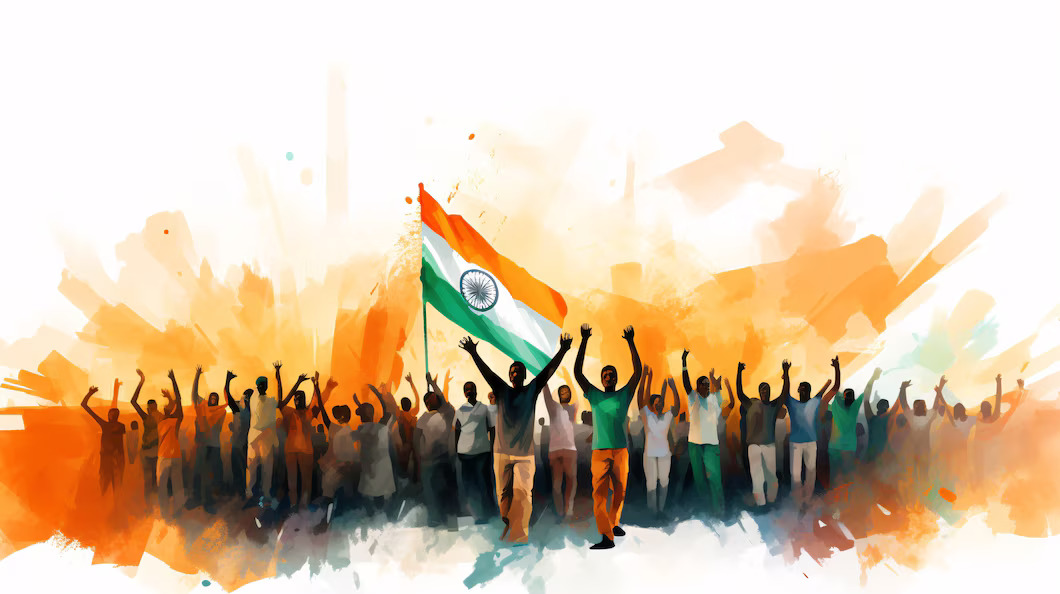Knowing the difference between nationality vs citizenship is important for anyone looking to clarify their legal status and rights in a country. While both terms are often used interchangeably, there are key differences between nationality and citizenship.
Nationality refers to where a person is born or has ties by descent, while citizenship is a legal status that grants specific rights and responsibilities in a country.
Let’s know the difference between nationality and citizenship with examples, helping you understand how they impact your identity, legal rights, and obligations in a given country.
What is Nationality?
Nationality refers to the country where you belong by birth or by your family ties. It shows which country you are connected to, and it is a legal bond between a person and their nation.
Your nationality doesn’t change easily; it is usually the country you are born in or where your parents are from.

How is Nationality Acquired?
Nationality is mainly acquired in two ways:
- By Birth: If you are born in a country, you automatically get the nationality of that country. For example, if you are born in India, you have Indian nationality.
- By Descent: Even if you are born in another country, you can have the nationality of your parents’ country. For instance, if your parents are Indian but you were born in the U.S., you can still have Indian nationality.
Example of Nationality
Let’s say a child is born in Mumbai, India. That child’s nationality is Indian because they were born in India. Similarly, if someone’s parents are Indian, but they are born in Canada, they might have Canadian nationality, but they can also claim Indian nationality through their parents.
What is Citizenship?
Citizenship is the legal status that gives a person specific rights and responsibilities in a country. While nationality shows where you belong, citizenship grants you the legal right to live, work, vote, and participate in a country’s political system.
You can have the nationality of one country but become a citizen of another through a process called naturalization.

How is Citizenship Acquired?
Citizenship can be acquired in different ways:
- By Birth: If you are born in a country, you automatically get citizenship in most cases. For example, if you are born in India, you are an Indian citizen.
- By Naturalization: If you move to another country and live there for many years, you can apply for citizenship. For instance, if an Indian moves to the U.S. and lives there for several years, they can apply to become a U.S. citizen.
- By Descent: Some countries allow citizenship to be passed down through parents, even if you are born elsewhere.
Example of Citizenship
A person born in India has Indian citizenship and the right to vote, work, and live in India. If that person moves to Canada and applies for Canadian citizenship after a few years, they can become a Canadian citizen while still holding Indian nationality.
Difference Between Nationality and Citizenship
Let’s compare the nationality vs citizenship to clarify things:
| Aspect | Nationality | Citizenship |
| Definition | Legal bond between a person and a country, usually by birth or descent. | Legal status granting rights and responsibilities in a country. |
| Acquisition | Acquired by birth or descent. | Acquired by birth, naturalization, or descent. |
| Changeability | Generally fixed and doesn’t change unless renounced. | Can be changed or acquired through naturalization. |
| Legal Rights | Does not grant full legal rights like voting or holding a passport. | Grants full legal rights, such as voting, holding a passport, and running for office. |
| Identity | Represents where a person belongs, culturally or ethnically. | Represents a legal connection with the state. |
| Political Participation | Does not include participation in political processes like voting. | Allows participation in political processes like voting and running for office. |
| Example | A person born in India has Indian nationality. | A person born in India can acquire U.S. citizenship by naturalization. |
Nationality vs Citizenship: Can You Have Both?
Yes, you can have both nationality and citizenship, but it depends on the laws of the countries involved.
How It Works:
- Nationality by Birth or Descent: A person has the nationality of the country where they are born or where their parents are from. For example, if you are born in India, you automatically have Indian nationality.
- Citizenship by Naturalization: If you move to another country and live there for several years, you may be able to apply for citizenship in that country. For instance, an Indian national can move to Canada and become a Canadian citizen through naturalization.
Can You Have Dual Citizenship?
Yes: Some countries allow dual citizenship, meaning you can be a citizen of two countries at the same time. For example, an Indian national who moves to Canada may hold both Indian nationality and Canadian citizenship.
No: Some countries don’t allow dual citizenship. In these cases, you may have to give up your original citizenship if you acquire a new one.
The ability to hold both depends on each country’s specific laws about nationality and citizenship.
Legal and Social Implications of Nationality and Citizenship
Nationality: Tied to Identity and Allegiance
Nationality represents a person’s legal connection to a country, showing where they belong by birth or descent. It is closely tied to a person’s identity, culture, and heritage.
Nationality shows allegiance to a nation but doesn’t always come with full legal rights in that country. A person with nationality may feel socially connected to the nation through shared values, traditions, and cultural identity.
Citizenship: Involves Legal Rights and Responsibilities
Citizenship goes beyond belonging and involves active legal participation in a country.
Citizens have specific rights, such as the ability to vote in elections, run for office, and hold a passport. Citizenship also comes with responsibilities like paying taxes and following the laws of the state.
Being a citizen means you have a say in the political and legal framework of the country, contributing to its governance and being subject to its legal protections.
Real Examples of Nationality and Citizenship
1. Priyanka Chopra Jonas (Indian Nationality, U.S. Citizenship)

- Nationality: Born in India, Priyanka Chopra holds Indian nationality.
- Citizenship: After marrying U.S. singer Nick Jonas and spending considerable time in the U.S., she may have obtained U.S. citizenship through her residency. Despite this, she maintains her Indian nationality and cultural identity.
2. Elon Musk (South African Nationality, U.S. Citizenship)

- Nationality: Elon Musk was born in South Africa, so he holds South African nationality.
- Citizenship: Musk later moved to the U.S., where he became a U.S. citizen. He also holds Canadian citizenship through his mother, making him a dual citizen of South Africa, the U.S., and Canada.
3. Salma Hayek (Mexican Nationality, U.S. Citizenship)

- Nationality: Salma Hayek was born in Mexico, giving her Mexican nationality.
- Citizenship: She later moved to the U.S. and became a naturalized U.S. citizen. While she enjoys all the rights of U.S. citizenship, she maintains her Mexican heritage and nationality.
4. Arnold Schwarzenegger (Austrian Nationality, U.S. Citizenship)

- Nationality: Born in Austria, Arnold Schwarzenegger holds Austrian nationality.
- Citizenship: He moved to the U.S. and became a naturalized U.S. citizen. Despite holding U.S. citizenship and even becoming Governor of California, Schwarzenegger has retained his Austrian nationality.
5. Charlize Theron (South African Nationality, U.S. Citizenship)

- Nationality: Charlize Theron was born in South Africa, making her a South African national.
- Citizenship: After moving to the U.S. and building her career there, Theron became a naturalized U.S. citizen. She still identifies with her South African roots and maintains her nationality.
What is Immigration?
Immigration is the process by which individuals move from their home country to settle in another country, either temporarily or permanently. People immigrate for various reasons, such as employment, education, family reunification, or escaping conflict and persecution.
- Temporary Immigration: Some people move for a short-term stay, like for work, study, or travel.
- Permanent Immigration: Others seek permanent residence in a new country to start a new life.
Countries have specific immigration laws that regulate who can enter, how long they can stay, and what rights they have (like working or studying).
Example:
A person from India immigrates to Canada for better job opportunities and eventually applies for permanent residency.
What is Naturalization?
Naturalization is the legal process through which a foreign national can become a citizen of a new country after meeting certain conditions, such as residency, language proficiency, and knowledge of the country’s laws and customs.
It is a pathway for immigrants who have been residing in a foreign country for a certain period of time to acquire citizenship in that country.
Naturalization generally requires passing a citizenship test, proving financial stability, and demonstrating integration into society.
Example:
An Indian immigrant living in the United States for several years can apply for U.S. citizenship through the process of naturalization after meeting residency requirements, passing a language test, and demonstrating knowledge of U.S. history and laws.
FAQs About Nationality vs Citizenship
Nationality refers to where a person belongs by birth or descent, while citizenship refers to the legal rights and responsibilities a person has in a country.
Yes, a person can have the nationality of one country and the citizenship of another. For example, someone born in India (Indian nationality) can acquire U.S. citizenship through naturalization.
In most cases, yes. Nationality is acquired by birth in a specific country or by descent from parents with that nationality.
Citizenship grants legal rights such as voting, holding a passport, working, paying taxes, and participating in a country’s political system.
Both are important but serve different purposes. Nationality is tied to identity, while citizenship grants legal rights and responsibilities in a country.
Naturalization is the process by which a foreigner can become a citizen of a country after fulfilling specific legal requirements, such as residency or passing a citizenship test.
Dual citizenship is when a person holds citizenship in two countries, enjoying legal rights in both.
Nationality is a legal status tied to a country, while ethnicity refers to a person’s cultural, racial, or ancestral identity, which may not be connected to nationality.
No, some countries do not allow dual citizenship and may require individuals to renounce their original citizenship to acquire a new one.
Countries like Canada, the U.K., the U.S., Australia, and Switzerland allow dual citizenship. However, India does not allow dual citizenship, though it offers Overseas Citizenship of India (OCI) for Indian nationals abroad.
No, nationality refers to the legal bond with a country, usually by birth or descent, while citizenship involves legal rights and responsibilities in a country.
People born in India generally have Indian nationality, unless they acquire nationality from another country through their parents or through naturalization elsewhere.
Not always. A person’s nationality can remain the same even if they acquire citizenship of another country. For example, an Indian national can acquire U.S. citizenship but still retain their Indian nationality.
Yes, individuals can renounce their citizenship if they wish to give up their legal rights and responsibilities in that country, usually to acquire the citizenship of another country.
Dual citizenship allows a person to enjoy the legal rights and privileges of both countries, such as owning property, traveling with multiple passports, and voting in both nations. It also provides greater flexibility for work and residence in both countries.
Read Next:


